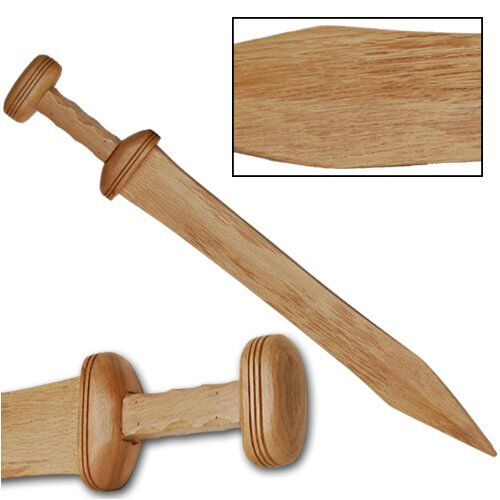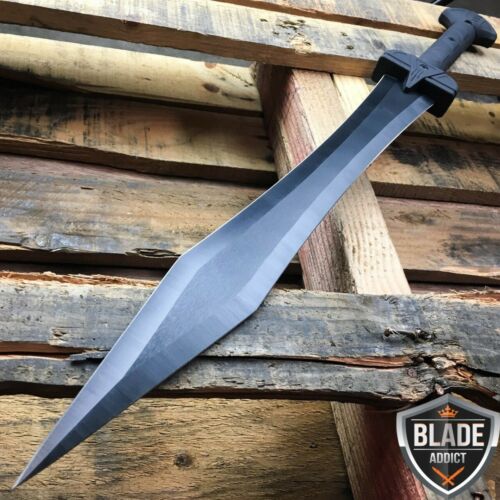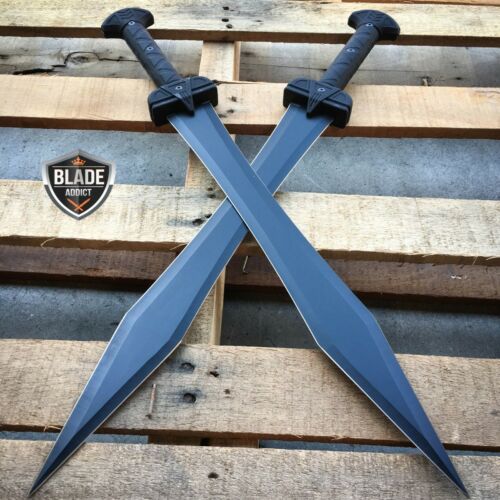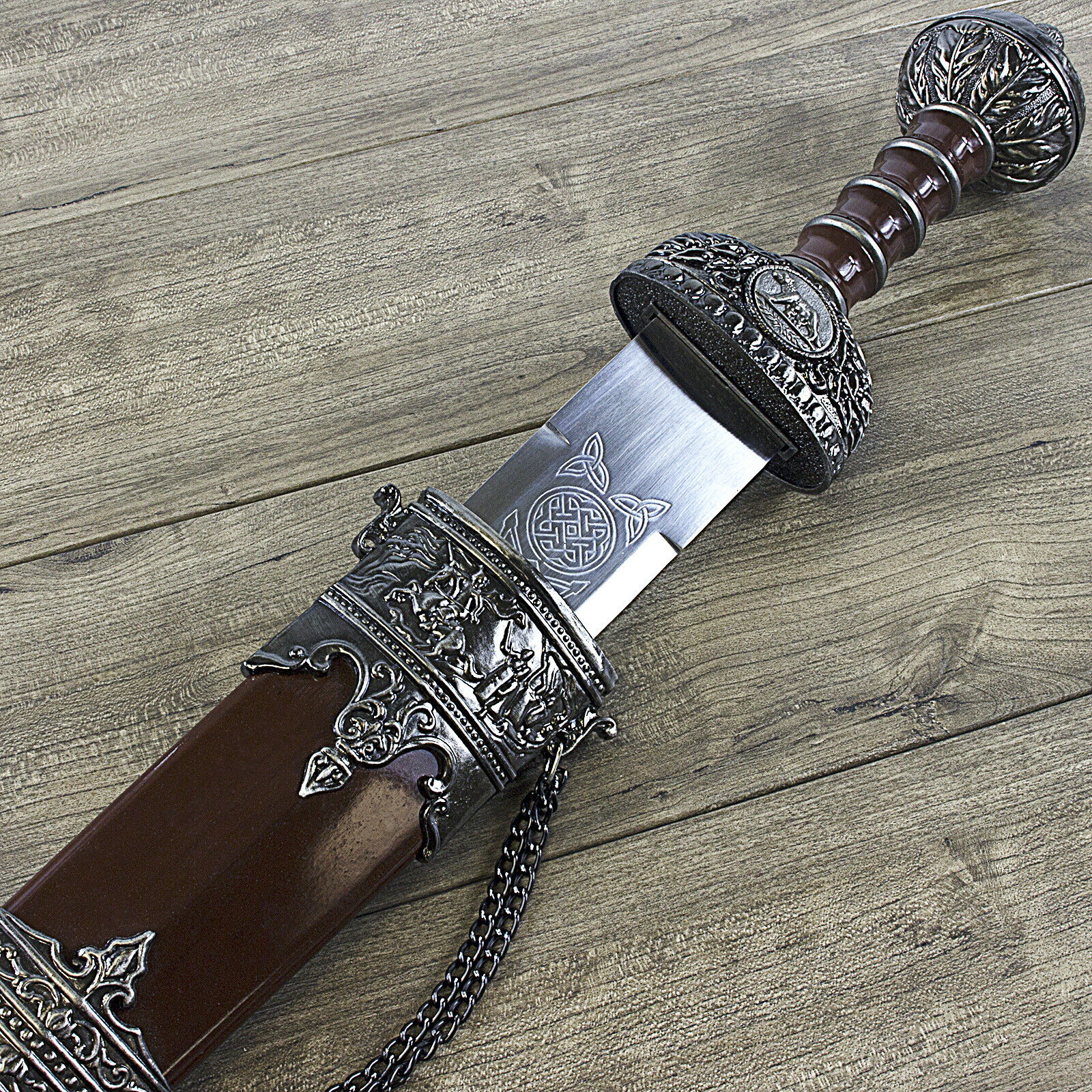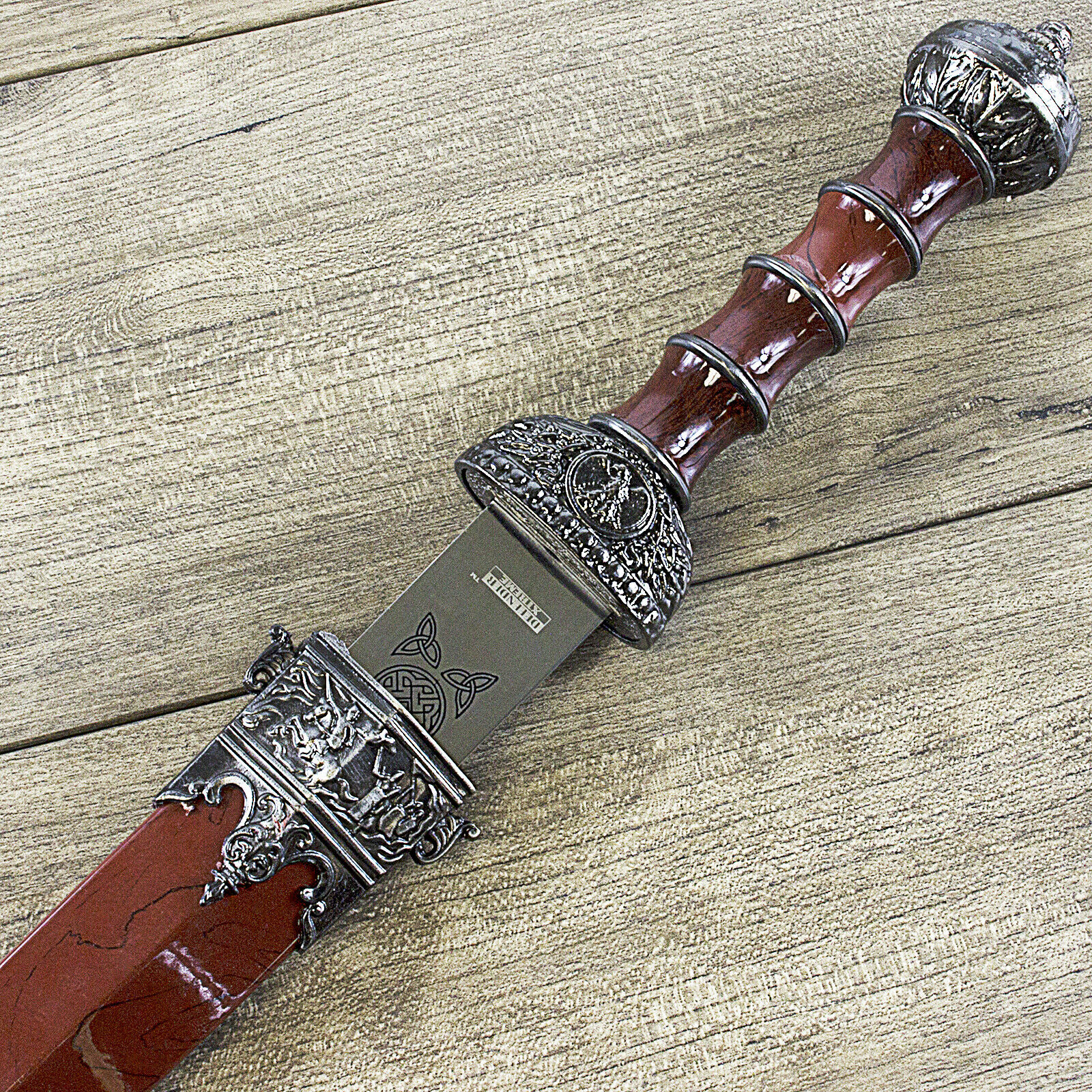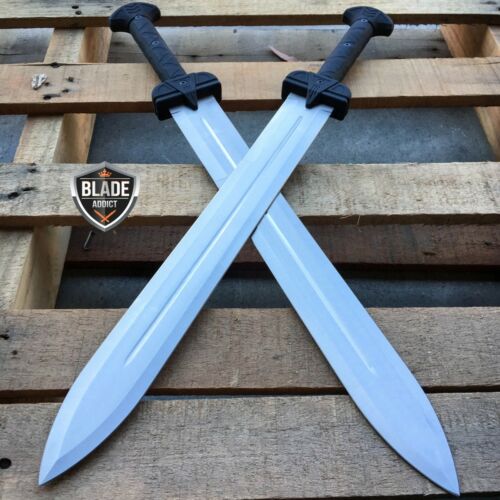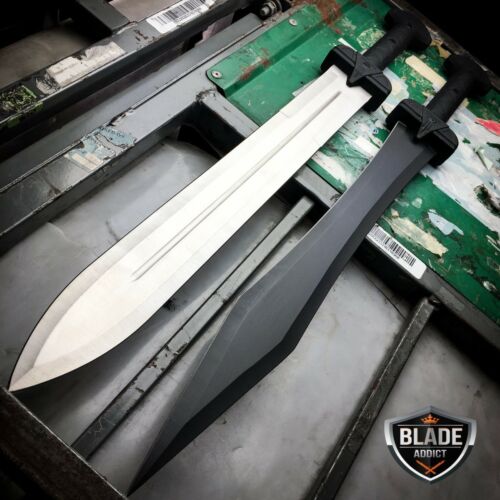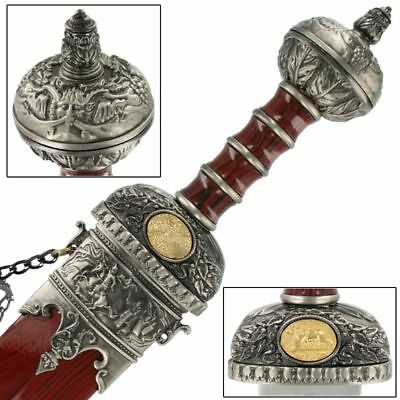-40%
Roman Silver Hasta Pura Military award decoration and spear for valour phalera
$ 126.19
- Description
- Size Guide
Description
This piece is made to order and takes about a month to do. 100% made in America. Roman Silver Hasta Pura Military award decoration and spear. You are buying just the life size silver metal Roman spear blade only. All other pictures only show ways in which I have displayed and used it as part of my military award standards in the past. The book " THE MILITARY DECORATIONS OF THE ROMAN ARMY" by Valerie A. Maxfield talks about it at length and has many pictures of different Roman military grave stele showing the this spear blade as an award along with the owners other military awards and decorations. Also see pictures of two Roman coins which show Roman military awards of the corona civica, the hasta pura and phalarae. My spear is based on those spear types as well as spear blades seen on countless Roman reliefs associated with a vexillum. It is cast solid is a silver billion metal to give the silver strength as was done by the Romans and the pole insertion part is also drilled out by hand using twelve large drill pits going from larger to smaller and filling the inside down. I am the only person in the world who makes this real silver Hasta Pura Roman spear blade award. It is expensive for me to cast at a foundry and time consuming to drill out and fill. For this reason, they are made to order only and are not kept in stock. It can take up to a month to make one. Every once in a while I may have one in stock but not normally. The book mentioned above has the best information along with most photographs showing this type of spear but the below information is also a quick read.The reason why I use silver in this spear blade is Roman military awards and military standards tended to have precious metals in them or on them. When Vitellius legions declared for him against the Emperor Otho, his centurions melted down their phalera military decorations to retrieve the silver to raise money for the campaign. Military standards were always kept in a buried guarded stone vault in forts and in Temples with the other gods in Rome. The reason for this is that Roman standards were considered demi gods and would have had only used the finest metals just like any Roman deity in a temple would have done for their particular god. During the Pannonian legion revolts after the death of Augustus, a spoke person for Tiberius was nearly killed by the angry legionaries who had already killed all of their centurions. His life was only spared because he grabbed a Roman standard and claimed sanctuary. There also archeological proof to back this up due to the
finds from Niederbieber, which include the silver top of a Roman Cohort standard which reads COH V and was abbreviated for (Cohors VII Raetorum equitata). This was a Roman auxiliary mixed infantry and cavalry regiment and if non citizen Roman soldiers used real silver on their standards, you know the full citizenship only force of Roman legionaries used both silver and gold on theirs, which would include the gold eagle standard (Aquila) which is well documented.
Hasta Pura (military decoration)
The Hasta Pura
or Hasta Donatica was a decoration
for merit, awarded in Ancient Rome. The Roman sources do not concur about the precise character of the decoration. Some call it a decoration for valour, others mention that it has been awarded to civilians. The hasta
was a thrusting weapon that was not thrown as were the later pilum, verutum or lancea.
A
hasta pura
was a spear made "without iron"and was in the earliest times the reward of a soldier the first time that he conquered in battle. Later it came to be awarded to a soldier who had struck down an enemy in a sally or skirmish.
Tacitus records a
hasta pura
being given as a decoration, bestowed upon a soldier for saving the life of a fellow-citizen:
In this engagement Rufus Helvius, a common soldier, won the honour of saving a citizen's life, and was rewarded by Apronius
with a torc
and a spear. To these the emperor added the civic crown,
complaining, but without anger, that Apronius had not used his right as proconsul to bestow this further distinction. A civil servant called Tiberius Claudius Balbilus
was awarded the
hasta pura
and perhaps also the corona aurea
by Claudius during the Thriumph
to celebrate the conquest of Britain in 44AD. As a friend and part of the Emperor’s retinue, it seems likely that his awards, as much as his military rank, were honorary. The
hasta pura
was also recorded as being given to the Primus Pilus
when he had completed his period of service.
Also, such a gift is sometimes recorded in funereal inscriptions.
" I have about 200 new custom made and designed items I will put up for sale, as well as my sword and sandal movie prop collection, my military miniature figure collection painted by Russian masters, my World War II collection, my ancient coin and ancient military artifact collection and other various military "militaria" items".
These will all be listed under the Terry Nix Collection III in the near future, so please keep checking back or you will miss that one of a kind item.












